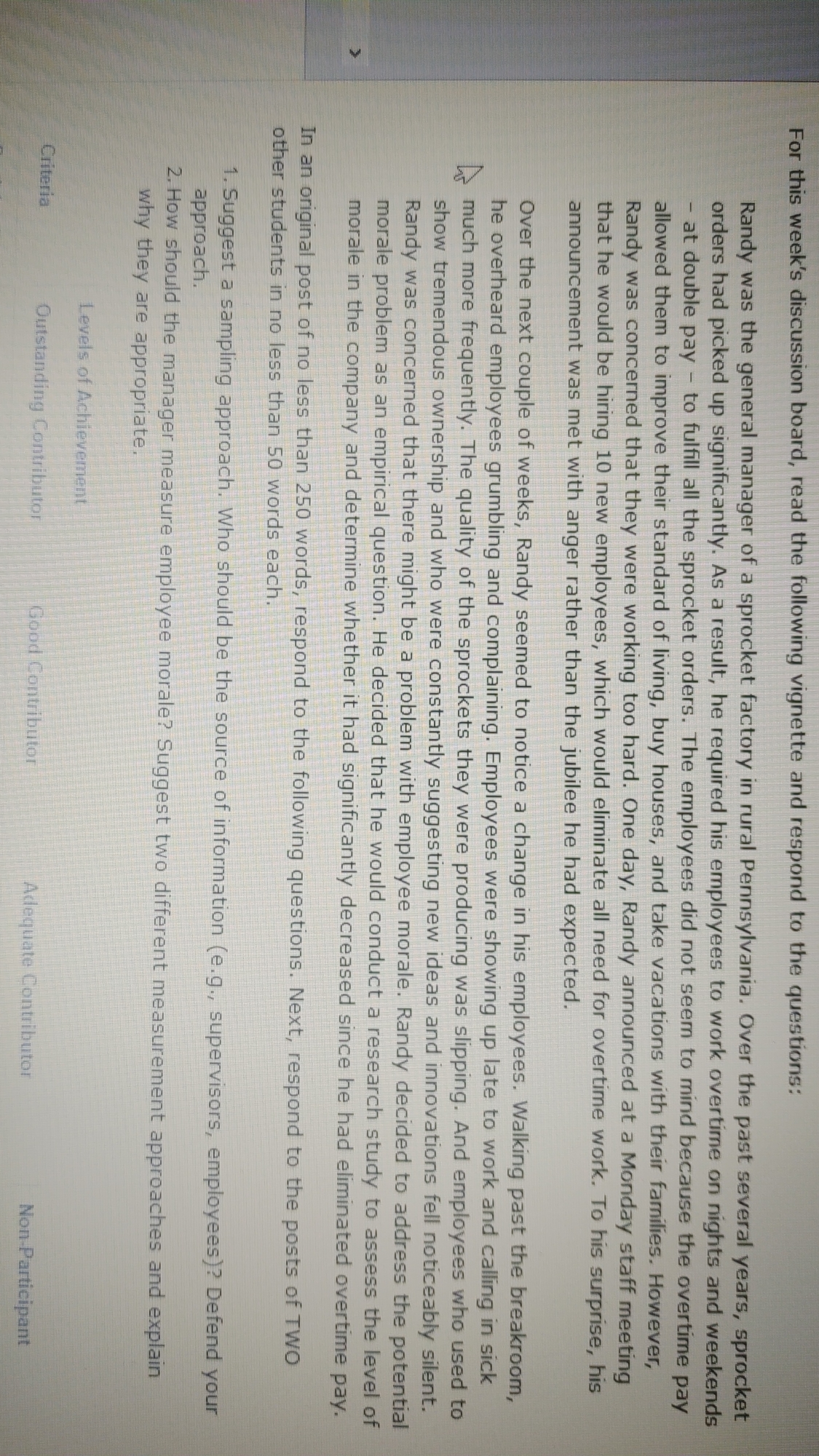For this week's discussion board, read the following vignette and respond to the questions: Randy was the general manager of a sprocket factory in rural Pennsylvania. Over the past several years, sprocket orders had picked up significantly. As a result, he required his employees to work overtime on nights and weekends - at double pay - to fulfill all the sprocket orders. The employees did not seem to mind because the overtime pay allowed them to improve their standard of living, buy houses, and take vacations with their families. However, Randy was concerned that they were working too hard. One day, Randy announced at a Monday staff meeting that he would be hiring 10 new employees, which would eliminate all need for overtime work. To his surprise, his announcement was met with anger rather than the jubilee he had expected. Over the next couple of weeks, Randy seemed to notice a change in his employees. Walking past the breakroom, he overheard employees grumbling and complaining. Employees were showing up late to work and calling in sick much more frequently. The quality of the sprockets they were producing was slipping. And employees who used to show tremendous ownership and who were constantly suggesting new ideas and innovations fell noticeably silent. Randy was concerned that there might be a problem with employee morale. Randy decided to address the potential morale problem as an empirical question. He decided that he would conduct a research study to assess the level of morale in the company and determine whether it had significantly decreased since he had eliminated overtime pay. In an original post of no less than 250 words, respond to the following questions. Next, respond to the posts of TWO other students in no less than 50 words each. 1. Suggest a sampling approach. Who should be the source of information (e.g., supervisors, employees)? Defend your approach. 2. How should the manager measure employee morale? Suggest two different measurement approaches and explain why they are appropriate. Levels of Achievement Criteria Outstanding Contributor Good Contributor Adequate Contributor Non Participant







